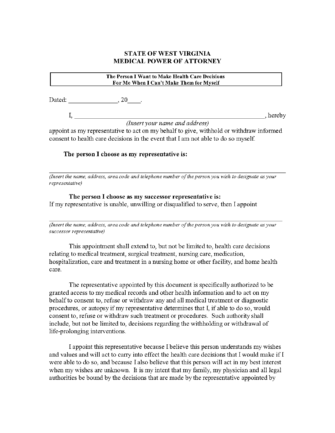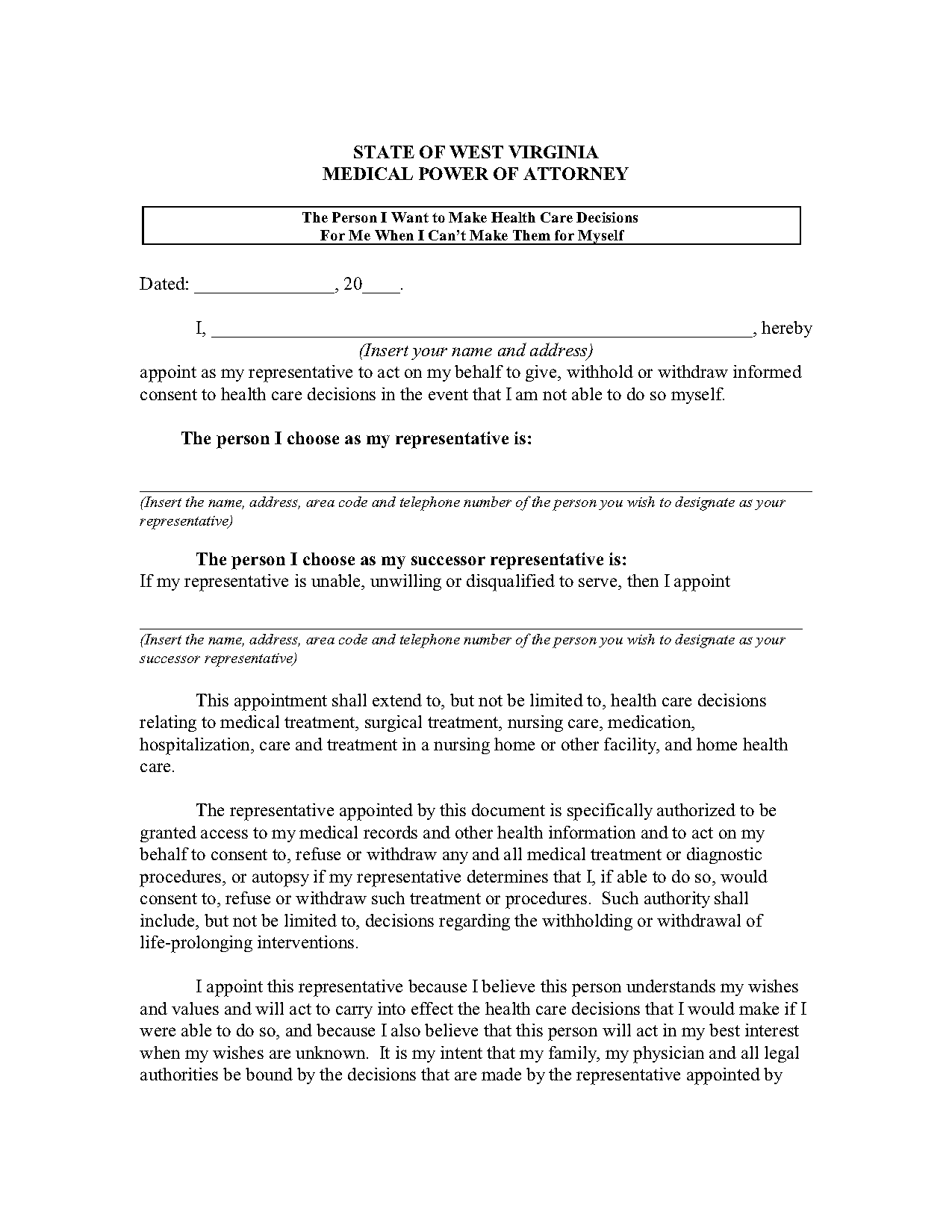Signing Requirements
Medical powers of attorney must be signed before two adult witnesses, and each witness’s signature must be notarized.[1] Neither witness can be the following[2]:
- The person who signs the POA on behalf of the principal (if applicable)
- The principal’s relative by blood or marriage
- A known beneficiary in the principal’s will
- Directly responsible for paying for the principal’s health care
- The principal’s attending physician
- The representative or successor representative named in the POA
Power of Attorney (Preview)
Legal Definition
“Medical power of attorney representative” or “representative” means a person, 18 years of age or older, appointed by another person to make health care decisions pursuant to the provisions of § 16-30-6 of this code or similar act of another state and recognized as valid under the laws of this state.[3]
Revocation
The principal, or someone at the principal’s direction, can revoke a medical power of attorney by[4]:
- Destroying the document.
- Executing a written revocation statement and delivering it to the attending physician.
- Verbally expressing the intent to revoke in front of an adult witness who signs and dates a statement confirming the revocation (verbal revocations only take effect when the principal notifies the attending physician).

